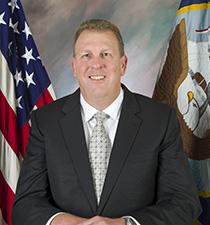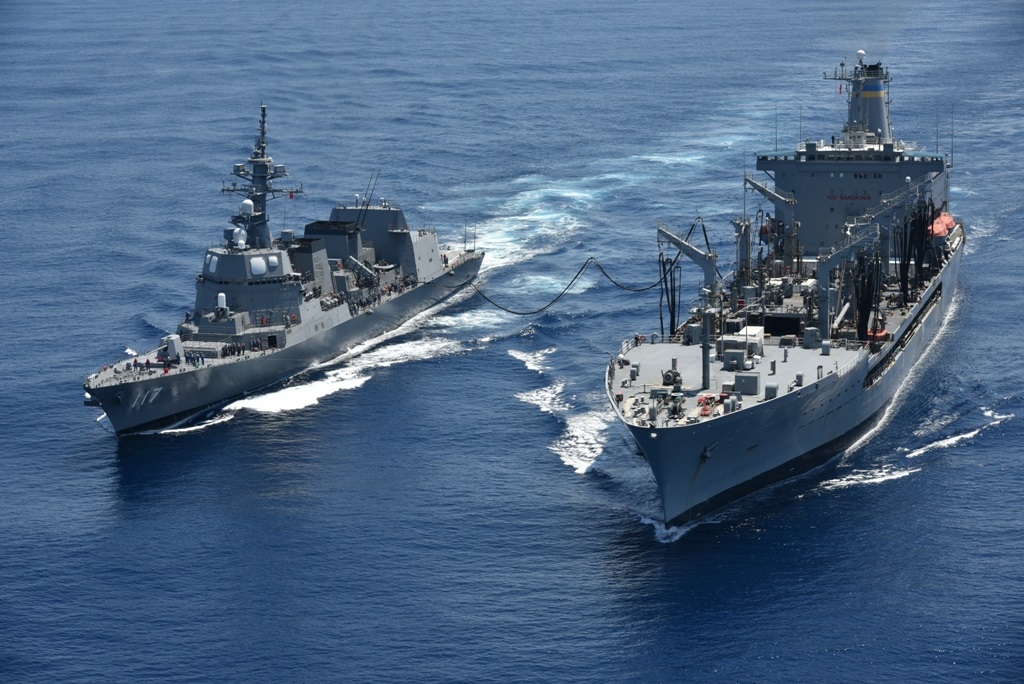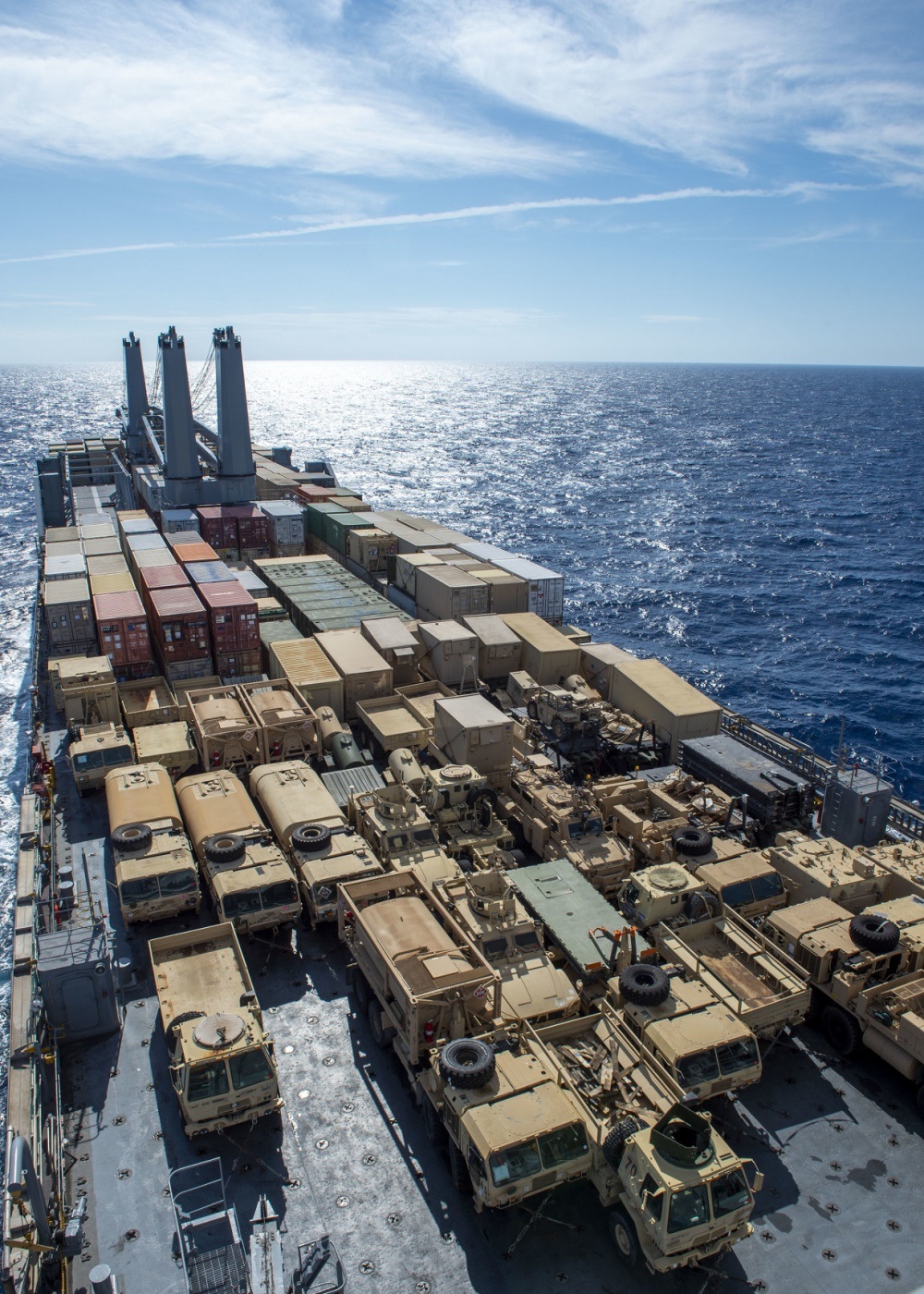Leadership Views: Steven Cade, Military Sealift Command, US Navy
Name: Steven Cade
Position: Executive Director, Military Sealift Command, US Navy
Years with DTI: 2
Number of Students Sponsored: 3
What is Military Sealift Command’s mission and what role does MSC have in supporting U.S. interests around the globe?
Military Sealift Command (MSC) is the primary provider of maritime logistics and ocean transportation to the Department of Defense, delivering fuel, supplies, and equipment to our military forces around the globe. On any given day, MSC has over 130 ships in locations throughout the world, replenishing U.S. Navy and Allied ships, conducting specialized missions such as towing and oceanographic survey, and prepositioning combat cargo and munitions in forward-deployed locations. We operate the DoD’s only hospital ships, the USNS Comfort and USNS Mercy, and the Navy’s submarine tenders, supporting ship repair and other services in remote and expeditionary locations where access to land-based facilities is limited. We have a global workforce of nearly 10,000 personnel, active duty military and civil service, mariners and contractors, operating our ships at sea and providing support from 15 locations ashore across the globe. In short, MSC’s mission is to prepare for and sustain seagoing operations required of our Nation’s defense.
What is MSC doing to stay competitive in a rapidly changing world?
As those affiliated with DTI well understand, international trade is the lifeblood of our nation, directly affecting our daily lives, and the preponderance of that trade is by sea. The turmoil of COVID, impacting shipping operations and availability of consumer goods, demonstrated the relative fragility of the interconnected and interdependent global maritime network. In addition to being fast-paced and competitive, today’s maritime environment is also contested, threatened by the potential of attacks at sea, denial of free passage, piracy, terrorism, or cyber vulnerabilities, among other challenges. In order to operate successfully in this environment, MSC is continuously adapting, developing new concepts to support operational logistics, experimenting with new technologies and testing new tactics. Examples include improvements in platforms and equipment to rearm and refuel forward-deployed combat forces at sea or on land; training our mariners in defensive capabilities, to include cyber; fielding unmanned systems to deliver critical repair parts hundreds of miles from ship to ship; and using digital twin technology to mirror shipboard engineering systems on land and enable predictive maintenance and repair.
What is a process or focus area MSC has been trying to improve?
Partnerships, in particular, is an area we are spending time and resources to develop further. Unlike the rest of the Navy’s ships built to military specifications, nearly all MSC vessels are built, operated, and maintained to commercial standards. Communication and collaboration with maritime industry partners is especially vital to our success. We are constantly reaching out to those in the commercial sector, other government agencies, academia, and union leadership to expand our capabilities and collectively address and solve common problems. Some examples include sharing best practices for operating and protecting the workforce in a COVID-19 environment, strategies to reduce cyber vulnerabilities, and improvements in planning and contracting for ship maintenance. We’re working closely with the Navy, the maritime academies, and other institutions on training and education programs to attract and retain a talented workforce, such as our partnership with DTI’s executive master’s program, and to better prepare mariners for operations at sea with the fleet. To help our commercial partners understand the operational and technical challenges we face, we routinely host industry days focusing on topics such as communications systems, advanced technologies, government contracts, small business utilization, and ship repair. These forums provide a transparent exchange of ideas and concepts and offer opportunities for attendees to offer solutions to common challenges.
Read more in the Military Sealift Command's annual report: https://www.msc.usff.navy.mil/Portals/43/Publications/Annual%20Report/MSCAnnual20.pdf.


